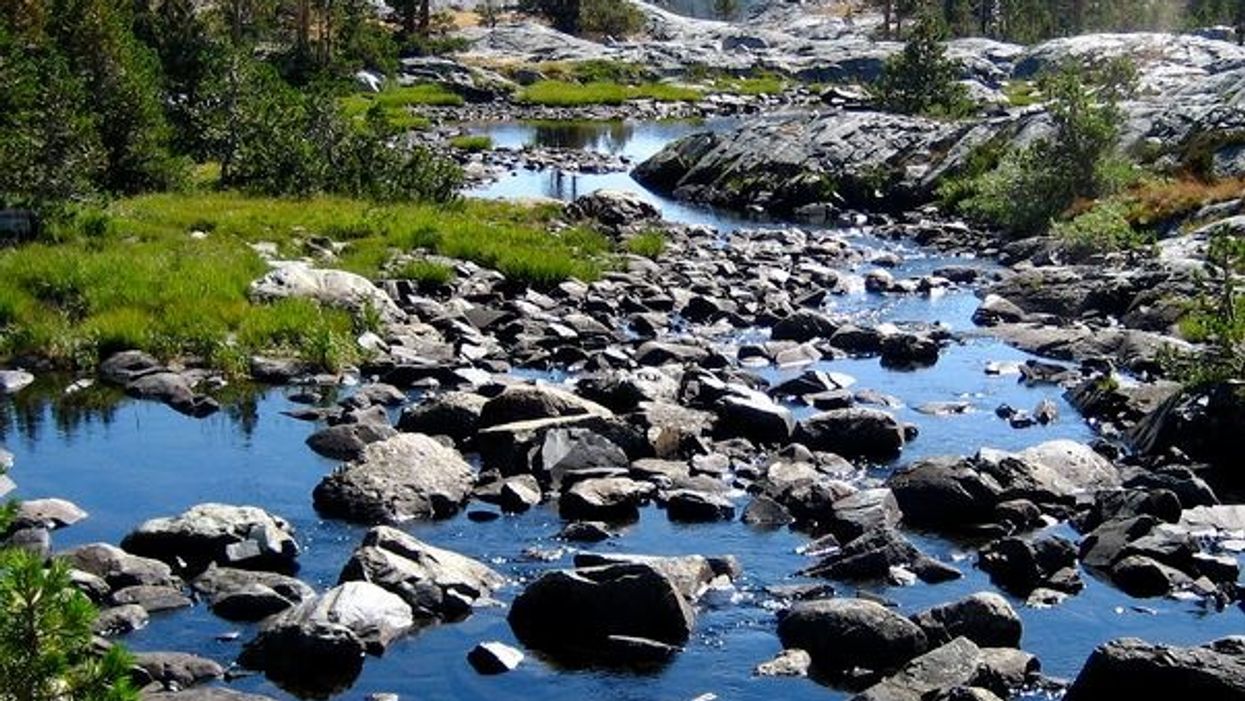Why Shouldn't Trees And Rivers Have Equal Standing With Corporations?

As an old axiom notes, "Mighty oaks from little acorns grow." From coast to coast, millions of these long-lived jewels have graced our landscape, but one mighty specimen in particular has recently become a hardy symbol of a fast-growing environmental movement. The significance of this oak — rooted on a small piece of land at the corner of Dearing and Finley Streets near downtown Athens, Georgia — is that no one owned it. It was an autonomous being, known locally as "The Tree That Owns Itself."
The tree was already a couple of centuries old back in 1832 when William Jackson, a property owner and prominent resident, expressed his "great affection" for the tree he had long enjoyed, and proclaimed his "great desire to see it protected." So, Jackson formally deeded "unto the said oak tree entire possession of itself (and the plot around it)."
Alas, age and decades of storms took their toll, and even though appreciative locals had tenderly nurtured it, the 100-foot-tall, self-possessed oak finally toppled in 1942. End of story? No!
It was common in Athens for people to collect and cultivate the tree's acorns, growing its offspring in their yards. So, in a citywide effort, a hardy, five-foot-tall direct descendant was soon located, donated, transplanted in the original plot and granted the same status of self-possession. And there it stands today, now more than 50 feet tall and officially embraced by the city as "Son of the Tree That Owns Itself."
This is more than just a heartwarming story, for that oak's autonomy and ancestry have become emblematic of a newly energized, transformative legal concept: "Rights of Nature." It's a simple idea: Rather than continuing to rely on the corporate-controlled, business-as-usual model of environmental regulation, why not grant self-protective rights of law to our invaluable natural systems? In a 1972 article, University of Southern California law professor Christopher Stone first pushed this straightforward and profound idea into public discussion by "seriously proposing that we give legal rights to forests, oceans, rivers, and other so-called 'natural objects' in the environment — indeed, to the natural environment as a whole."
His point was that these living beings, no less than humans, have intrinsic value and the inherent right to exist, regenerate, flourish and defend themselves from exploitation and death. Current legal theory, though, generally recognizes nature as nothing but "property," and those who harm or even kill it can be prosecuted only if it can be proved that the damage injures humans. In short, harming nature is not itself illegal.
Thus, under the present regulatory regime, nature's well-being is irrelevant, and environmental cases are reduced to nitpicking over micro details, such as how many parts per billion of a chemical contaminant in a river is safe for humans. Establishing rights for nature would empower the river itself to sue for its loss of life, along with harm to the fish, plants and other organisms that depend on the river's health.
But, you might ask, how can trees, lakes, etc., argue in court? The same way we do, explained Stone: Lawyers could sue on their behalf, and groups, from Greenpeace to local coalitions, could serve as legal guardians. No less a judicial eminence than Justice William O. Douglas endorsed Stone's proposal in a dissenting opinion in a landmark 1972 Supreme Court case. In Sierra Club v. Morton, Douglas asserted:
Contemporary public concern for protecting nature's ecological equilibrium should lead to the conferral of standing upon environmental objects to sue for their own preservation.
The foundational truth upholding this legal approach is that we humans and our environment are one organism. After all, we can't live without nature; indeed, we are nature, and nature is us.
Such an obvious truth, however, is not only inconvenient, but abhorrent to profiteering environmental exploiters. They immediately ridiculed Stone and the Rights of Nature idea, but the concept caught on anyway, so that now, 50 years later, corporate interests are hyperventilating and on the attack. Last July, Koch brothers political operative David McDonald warned property owners to rally against this movement. "Streams don't have rights," he barked. "Rights ... belong to people, not to artifacts within the environment or natural wonders."
Seriously? A tree is just an "artifact"? Don't "natural wonders" — from rainforests to coral reefs — have more intrinsic value to Earth, our own health and our posterity than some corporation's short-term profits?
And what a hoot it is for this representative of corporate supremacy to declare that rights only "belong to people." He is, after all a functionary for the avaricious money powers that have spent years perverting law, logic and reality to promote the absurd fiction that corporations (artificial constructs with no life, no organic systems, no pulse or brain, no sentient existence whatsoever) are "people" with the legal rights of "personhood."
Populist author, public speaker, and radio commentator Jim Hightower writes The Hightower Lowdown, a monthly newsletter chronicling the ongoing fights by America's ordinary people against rule by plutocratic elites. Sign up at HightowerLowdown.org.
- The Rights of Nature and the Future of Public Health ›
- The Rights of Nature: A Legal Revolution That ›
- Can we protect nature by giving it legal rights? | Ensia ›
- Rights of Nature: The New Paradigm – AAG Newsletter ›
- Rights of Nature, Rights of Animals - Harvard Law Review ›
- Global Alliance for the Rights of Nature (GARN) ›
- The Rights of Nature — Can an Ecosystem Bear Legal Rights? ›








